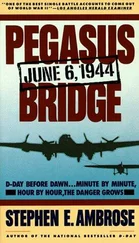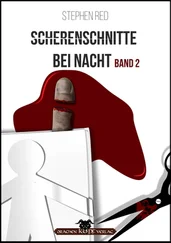Stephen Ambrose - Band of Brothers
Здесь есть возможность читать онлайн «Stephen Ambrose - Band of Brothers» весь текст электронной книги совершенно бесплатно (целиком полную версию без сокращений). В некоторых случаях можно слушать аудио, скачать через торрент в формате fb2 и присутствует краткое содержание. Жанр: История, на английском языке. Описание произведения, (предисловие) а так же отзывы посетителей доступны на портале библиотеки ЛибКат.
- Название:Band of Brothers
- Автор:
- Жанр:
- Год:неизвестен
- ISBN:нет данных
- Рейтинг книги:4 / 5. Голосов: 1
-
Избранное:Добавить в избранное
- Отзывы:
-
Ваша оценка:
- 80
- 1
- 2
- 3
- 4
- 5
Band of Brothers: краткое содержание, описание и аннотация
Предлагаем к чтению аннотацию, описание, краткое содержание или предисловие (зависит от того, что написал сам автор книги «Band of Brothers»). Если вы не нашли необходимую информацию о книге — напишите в комментариях, мы постараемся отыскать её.
Band of Brothers — читать онлайн бесплатно полную книгу (весь текст) целиком
Ниже представлен текст книги, разбитый по страницам. Система сохранения места последней прочитанной страницы, позволяет с удобством читать онлайн бесплатно книгу «Band of Brothers», без необходимости каждый раз заново искать на чём Вы остановились. Поставьте закладку, и сможете в любой момент перейти на страницу, на которой закончили чтение.
Интервал:
Закладка:
The contrast in appearance was almost as great as the contrast in numbers. The conquering army looked sloppy, unmilitary, ill-disciplined,- the conquered army looked sharp, with an impressive military appearance and obvious discipline. Winters felt that the German soldiers and Austrian civilians must have wondered, as they gazed fascinated at the first American troops to arrive in the area, how on earth they could have lost to these guys.
Winters set up Battalion HQ in the village of Kaprun, 4 kilometers south of Zell am See. The valley was one of the most famous mountain resort areas in the world, especially popular with rich Germans. The accommodation, ranging from the zim-mei fiei at farmhouses to luxurious hotels, were stunning. All the rooms were occupied by wounded German soldiers. They had to move out, to be sent by truck or train to stockades in the Munich area. The Americans moved in.
Their job was to maintain order, to gather in all German soldiers, disarm them, and ship them off to P.O.W. camps. Winters got started the morning of May 9, immediately upon arrival. He had the senior German commander in the area brought to him. "I was twenty-seven years old," Winters recalls, "and like all the troops, I was wearing a dirty, well-worn combat fatigue jacket and pants, and had that bucket on my head for a helmet. I felt a little ridiculous giving orders to a professional German colonel about twenty years my senior, who was dressed in a clean field uniform with his medals all over his chest."
Winters gave his orders anyway. He directed the colonel to see to the collection of all weapons in the area and to stack them in the airport, at the school, and in the church yard. He gave officers permission to keep their side arms and allowed German military police to retain their weapons. And he said that the following day he would inspect the German camps, troops, and kitchens.
The next morning, May 10, Winters and Nixon drove by jeep to inspect the arms dumps. They were shocked by what they saw: in all three locations, a mountain of weapons. Winters realized he had made a mistake when he said "all weapons." He had meant military weapons, but the colonel had taken him too literally. There was a fantastic collection of hunting rifles, target rifles, hunting knives, antique firearms of all kinds, as well as a full division's stock of military weapons. It seemed enough to start World War III.
When he inspected the camps and kitchens, Winters found everything well organized. Troops were lined up for review, looking parade-ground sharp, clean, well-dressed, in good condition. The kitchens were in good order; the cooks were making large kettles of potato soup over fires.
Thereafter, Winters dealt with an English-speaking German staff officer, who came to his HQ each morning to report and receive orders. There was no trouble,- in Winters' words, "We left them alone, they respected us." The German staff officer would tell stories about his tour of duty on the Eastern Front, and of fighting against the 101st in Bastogne. He told Winters, "Our armies should join hands and wipe out the Russian army."
"No thanks," Winters replied. "All I want to do is get out of the Army and go home."
That was what nearly everyone wanted, none more than the German troops. Before any could be released, however, all had to be screened. The German encampments were crawling with Nazis, many of whom had put on enlisted men's uniforms to escape detection. (The most notorious of these was Adolf Eichmann, wearing the uniform of a Luftwaffe corporal in a camp near Berchtesgaden. He managed to escape before he was detected, got to Argentina with his family and lived well until 1960 when Israeli agents discovered his whereabouts, captured him in a daring commando raid, brought him to Israel for trial, and hanged him.)
Lieutenant Lipton was serving as leader of the machine-gun platoon in HQ Company, 2nd Battalion. Winters assigned him to oversee a lager of several hundred prisoners. One of them was Ferdinand Porsche, designer of the Volkswagen and the Panther and Tiger tanks. In mid-May, Lipton cleared about 150 of the prisoners for release. The senior German officer, a colonel, asked permission to talk to-them before they were let go. Lipton agreed.
"His talk was long and was a good one," Lipton recalled. "He told them that Germany had lost the war, that they had been good soldiers and he was proud of them, and that they should go back to their homes and rebuild their lives. He said that all of them were needed for the reconstruction of Germany. When he finished, the men gave a loud cheer," and took off.
Other high-ranking German officials, men who had good reason to fear that they would be charged with war crimes, were hiding in the mountains. Speirs was told by the D.P.s about a man who had been the Nazi head of the slave labor camps in the area and had committed a great many atrocities. He investigated, asked questions, and became convinced they were telling the truth. Further investigation revealed that this man was living on a small farm nearby.
Speirs called in 1st Sergeant Lynch. He explained the situation, then gave his order: "Take Moone, Liebgott, and Sisk, find him, and eliminate him."
Lynch gathered the men, explained the mission, got a weapons carrier, and took off up the mountain. During the trip, Moone thought about his predicament. He was sure that Captain Speirs did not have the authority to order an execution based on testimony from the D.P.s. But Speirs was the company C.O. and Moone was just an enlisted man carrying out an order. He decided, "I'm not complying with this bullshit. If someone has to do the shooting, it won't be me."
They got to the farm and without a struggle took the Nazi prisoner. Liebgott interrogated him for thirty minutes, then declared there could be no doubt, this was the man they wanted, and he was guilty as charged. The Americans pushed the man at gun point to the weapons carrier, then drove off. Lynch stopped beside a ravine. They prodded the man out of the vehicle. Liebgott drew his pistol and shot him twice.
The prisoner began screaming. He turned and ran up the hill. Lynch ordered Moone to shoot him.
"You shoot him," Moone replied. "The war is over."
Skinny Sisk stepped forward, leveled his M-l at the fleeing man, and shot him dead.
After the P.O.W.s and D.P.s were sorted and shipped out of the area, the next job was to sort out and consolidate all the captured German equipment and the U.S. Army equipment no longer needed for combat. As the material was gathered and registered, convoys of trucks took it to depots in France.
Officers were ordered to turn in the silk escape map of France they had received before the jump into Normandy or be fined $75. As those maps were damn near sacred to the D-Day veterans, there was universal noncompliance. When told to pay the fine, Winters replied for the entire battalion, taking his line from General McAuliffe: "Nuts." The regimental supply officer, Capt. Herbert Sobel, backed down.
Given the absence of resistance, indeed the enthusiastic cooperation of the Germans and Austrians, by the end of the third week in May there was little real work left for the Americans. All KP, washing clothes, cleaning quarters, or construction tasks were done by local residents anxious to make some money or receive food or cigarettes. Time was hanging heavy on the heads of the young men lusting to go home.
Winters had a track built, a tennis court, and a baseball field, then a rifle range. Competitions were held, between companies, battalions, regiments, all the way up to ETO. He held daily close-order drills.
There were men who loved it. To the serious athletes, those with hopes of a future college or professional career, it was a marvelous opportunity to train. They were excused from all duties, lived in a separate athletic dorm, and got to practice or compete every day. To the few who planned to make a career of the Army, it was a chance to practice their profession.
Читать дальшеИнтервал:
Закладка:
Похожие книги на «Band of Brothers»
Представляем Вашему вниманию похожие книги на «Band of Brothers» списком для выбора. Мы отобрали схожую по названию и смыслу литературу в надежде предоставить читателям больше вариантов отыскать новые, интересные, ещё непрочитанные произведения.
Обсуждение, отзывы о книге «Band of Brothers» и просто собственные мнения читателей. Оставьте ваши комментарии, напишите, что Вы думаете о произведении, его смысле или главных героях. Укажите что конкретно понравилось, а что нет, и почему Вы так считаете.



![Stephen Ambrose - Citizen Soldiers [Condensed]](/books/346737/stephen-ambrose-citizen-soldiers-condensed-thumb.webp)
![Stephan Orth - Behind Putin's Curtain - Friendships and Misadventures Inside Russia [aka Couchsurfing in Russia]](/books/415210/stephan-orth-behind-putin-s-curtain-friendships-a-thumb.webp)





